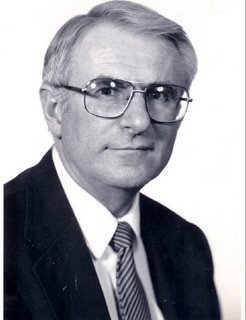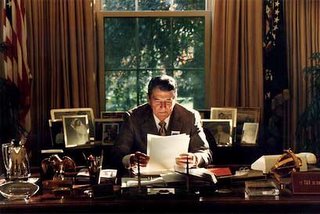
I have just seen what I think might be the best hour of sports reporting I think I’ve ever seen. I’ve liked Real Sports, with Bryant Gumble in the past, but I’ve never made it a must see television show. Tonight I watched the 2005 “recap/best-of” show and each story was more interesting than the next. Four stories from 2005 that were heart- wrenching/inspiring, astounding (in a bad way), outlandishly funny (and again, astounding), and finally just plane happy.
The first story was from right here in Boston and profiled Rick and Dick Hoyt. I’m not a native New Englander, but I feel as though every year I have been here I’ve seen some mention of the guy who pushes his wheel-chair bound son through the Boston marathon. Rick Hoyt was choked by his own umbilical chord before birth and was born without the ability to move any part of his body save his head. He wasn’t able to communicate with his own mother and father until hooked to a computer when he was twelve, his first words being “Go Bruins.” In 1977 Rick inspired his father to push him through a five mile road race to inspire a man who had recently become a quadriplegic; this despite the fact that his father was no athlete. Now 65 years old, Dick Hoyt has pushed his son through endless marathons and triathlons—either pushing his son in a wheelchair, riding him on a specially handlebarred bike, or pulling him in a raft while swimming. Even so he beats out many athletes despite the added weight.
The second story was maddening, astounding even in 2005. The story profiles the constant presence of outright, unabashed racism of European soccer crowds. Any time a black athlete in one of these games is passed the ball they are berated with a “monkey chant” or bombarded with actual bananas. Not just a few, but ten or fifteen at a time. That’s a lot of people practicing pre-meditated hate. What’s more, this isn’t just one stadium or country practicing this, but multiple throughout the UEFA. Hundreds of fans at once giving a Nazi Seig Heil salute (Spain and Italy, as well as Eastern European states were singled out as the worst, though British white supremacists were also profiled). I’m reminded of the article I wrote about where France disallows Muslim head-dresses ("What did you expect France?"). I know the United States has a racism problem. I know it’s still there, but this…was…astounding. Horrifying even. No excuse really. I’m certainly going to pause the next time one of my liberal friends tells me that we need to worry because “W” has lowered the respect of Europeans around the world. (yes, I know it’s an unfair generalization- but they obviously have their own issues).
The third story was finally funny – in a “this is unbelievable?” kind of way. In Kentucky there is a horse by the name of Storm Cat. A grandson of the famous Secretariat, Storm Cat only made around $500,000 total in winnings as a racer. However, it turns out that the offspring of Storm Cat had a gift for running ($90 million total in winnings so far). As such, Storm Cat gets sold out for stud. Twice a day, seven days a week, 365 days a year Storm Cat…has sex with other mares (that’s 730 a year “for those of you in Rio Linda” minus a few repeats and rejects). The Stud fees for Storm Cat are…hold on to your hats here…$500,000 for each conceived horse. Given that the horses are timed to be in heat, that’s a lot of baby horses, $20 million per year at the current rate. Storm Cat is currently the father of at least 1,200 horses! Probably the funniest, and at the same time unbelievable thing I’ve seen on TV in a long time.
Lastly is the story of Ryan Belflower, a special education student who beat the odds by making the varsity basketball team at his High School. The story is heart-warming, and good, and reminds me of the movie Rudy. In the end Ryan gets to play in “junk time” during games where the team is either winning real well or losing real bad. The story ends happily when Ryan finally makes a shot in his 26th game, and last chance in regular season as a senior. He goes on in a playoff to make two straight three pointers. The best part is the overwhelming support of his community and school, proving that sometimes, people…are just…good.
Great show. (HBO is _SO_ much better than normal TV).


















